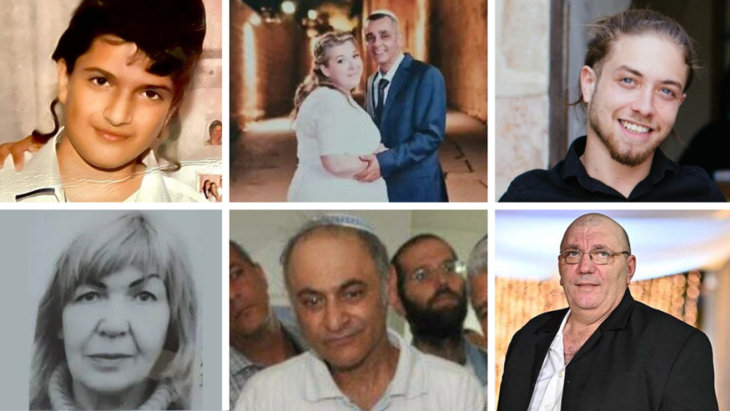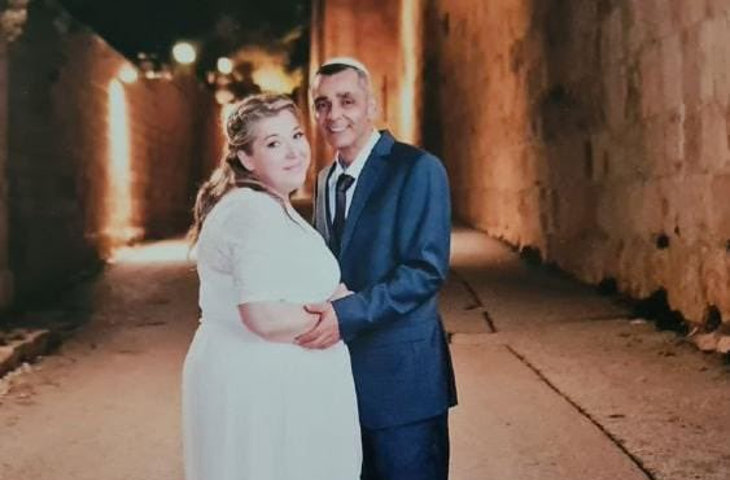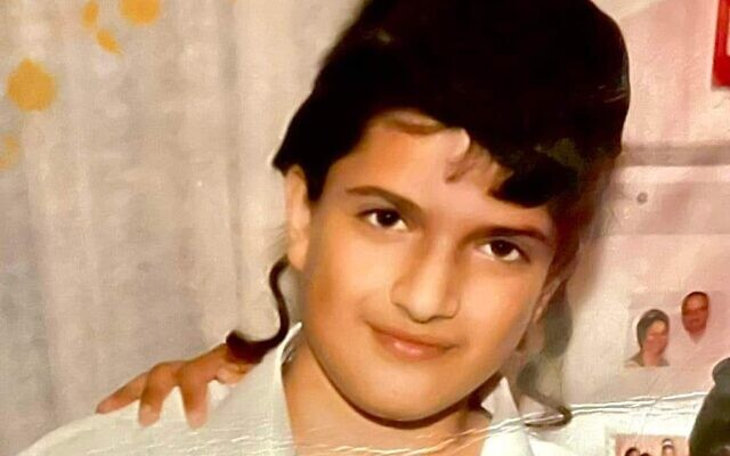 Vampire Weekend's Surprising Jewish Stories
Vampire Weekend's Surprising Jewish Stories


4 min read
Inside the Mizrahi and Natan houses of mourning, a community and entire nation stand together in mourning after a deadly synagogue shooting.
Eli Mizrahi (48) and his wife Natali (45) arrived on Friday, January 27 to the Jerusalem neighborhood of Neve Yakov to spend Shabbat with Shimon, Eli’s elderly father. Given Shimon’s declining ability to care for himself, Eli and Natali have been visiting more often to provide Shimon food and companionship.
Hearing gunfire from the direction of the Ateret Avraham synagogue across the street during the Friday night meal, Eli descended first the two flights of stairs from Shimon’s apartment to offer first aid. Against Shimon’s pleas to stay put, Natali followed her husband under the false pretenses that the attack was over.
Minutes later, the bodies of Eli and his wife Natali lay together, motionless on the street. Their souls ascended to heaven in an eternal embrace —- a marriage lasting merely two years in this dimension, a love story and heroism that will reverberate throughout Jewish history.
 EIi and Natalie Mizrahi
EIi and Natalie Mizrahi
While I have never previously been to Neve Yaakov, I felt inspired Sunday morning to pay my respects to the families, and miraculously got off the inner-city bus exactly at the scene of the attack. After lighting a candle at the scene of the tragedy and offering my personal prayers inside the Ateret Avraham synagogue, I crossed the street to pay a shiva call at the Mizrahi home.
Upon entering a wide-open door to the Mizrahi family apartment, I was struck by the silence. It is traditional when entering a Jewish house of mourning not to speak or offer condolences until one is first addressed by the mourners themselves —- I have never waited so long before being addressed at a shiva.
I sat for a few minutes that felt like hours on a chair next to Shimon, tears dripping down my face as I allowed the family’s silent grief to fill my heart. One of the other guests from the neighborhood broke the silence and addressed Shimon, who shared bits and pieces of the Mizrahi family history and some of his grief.
Shimon told me that the Mizrahi family arrived in Jerusalem via Turkey 200 years ago, literally on the back of a camel. When some of the guests expressed feelings of anger and attempted to comfort Shimon, he made it very clear that nothing can replace the loss the Eli and Natali. “There is no comfort,” he repeated.
I placed my hand on Shimon’s shoulder and said, “You are not mourning alone, but that all of Israel is mourning with you.” I then shared the traditional phrase said upon leaving a shiva house: May the Omnipresent comfort you among the mourners of Zion and Jerusalem.
I did not need to walk far to visit the next family in Neve Yaakov who was sitting shiva. Aharon Natan, father of Asher (14) stood outside across the street from the Mizrahis, wearing his tallit (prayer shawl) and greeting visitors. Asher, who left the family’s home to play with friends, was discovered by his father amongst the shooting victims.
 Asher Natan
Asher Natan
In spite of the unspeakable tragedy of losing his eldest son, Aharon extended his arms to greet me, a stranger, in a warm and enduring embrace – two fellow Jews sharing searing pain. I was struck dumb with silence, as the warmth of our hug communicated my heartfelt condolences for the inconceivable loss of Asher.
While attending Shiva on Sunday in Neve Yaakov, I was unable to attend the funeral services of Rafael Ben-Eliyahu (58) and Shaul Hai (68) who were laid to rest in Jerusalem’s Givat Shaul cemetery at the same time. Upon arriving to the neighborhood, I was offered a ride to the cemetery, but decided that I could make a bigger difference in the smaller, more intimate environment of shiva.
After the Friday night candles are lit this Shabbat, the seven-day shiva period will officially end for all the families grieving this week. While it is a mercy that Jewish mourning practices gradually lessen, in this case it is hard to fathom how the Mizrahi and Natan families can celebrate a peaceful Sabbath with three missing seats at their combined Shabbat tables. Only the knowledge that the entire Jewish people mourns with them and shares in their pain can we hope to offer them and each other a “Shabbat Shalom.”
